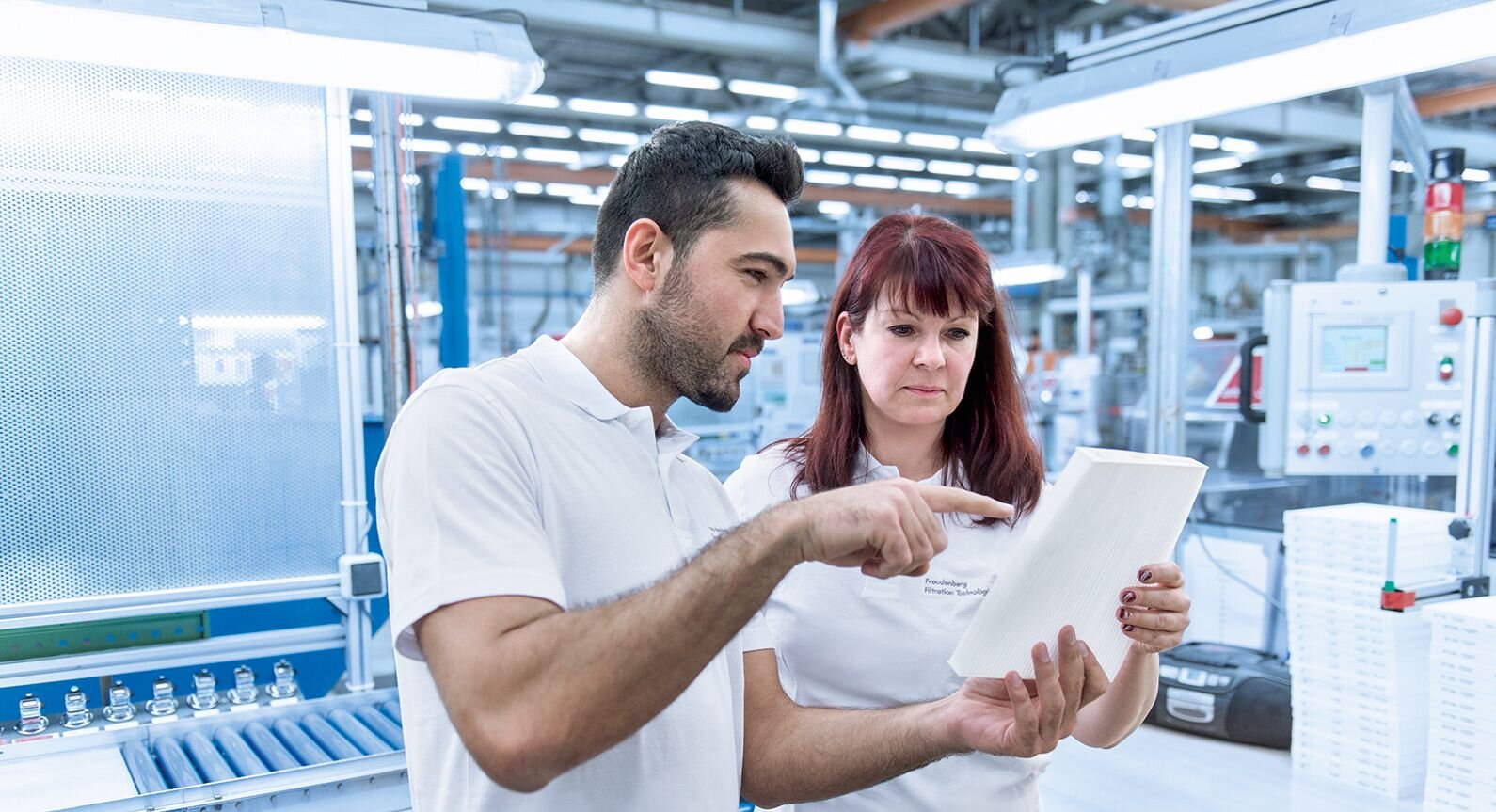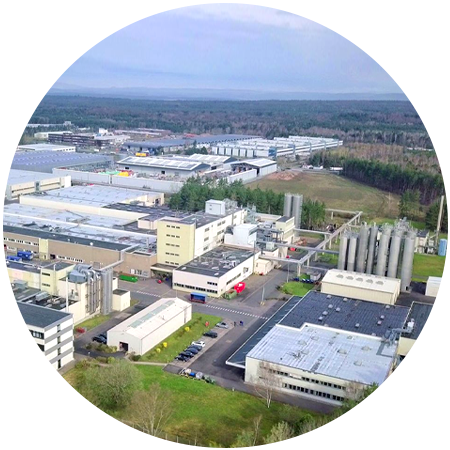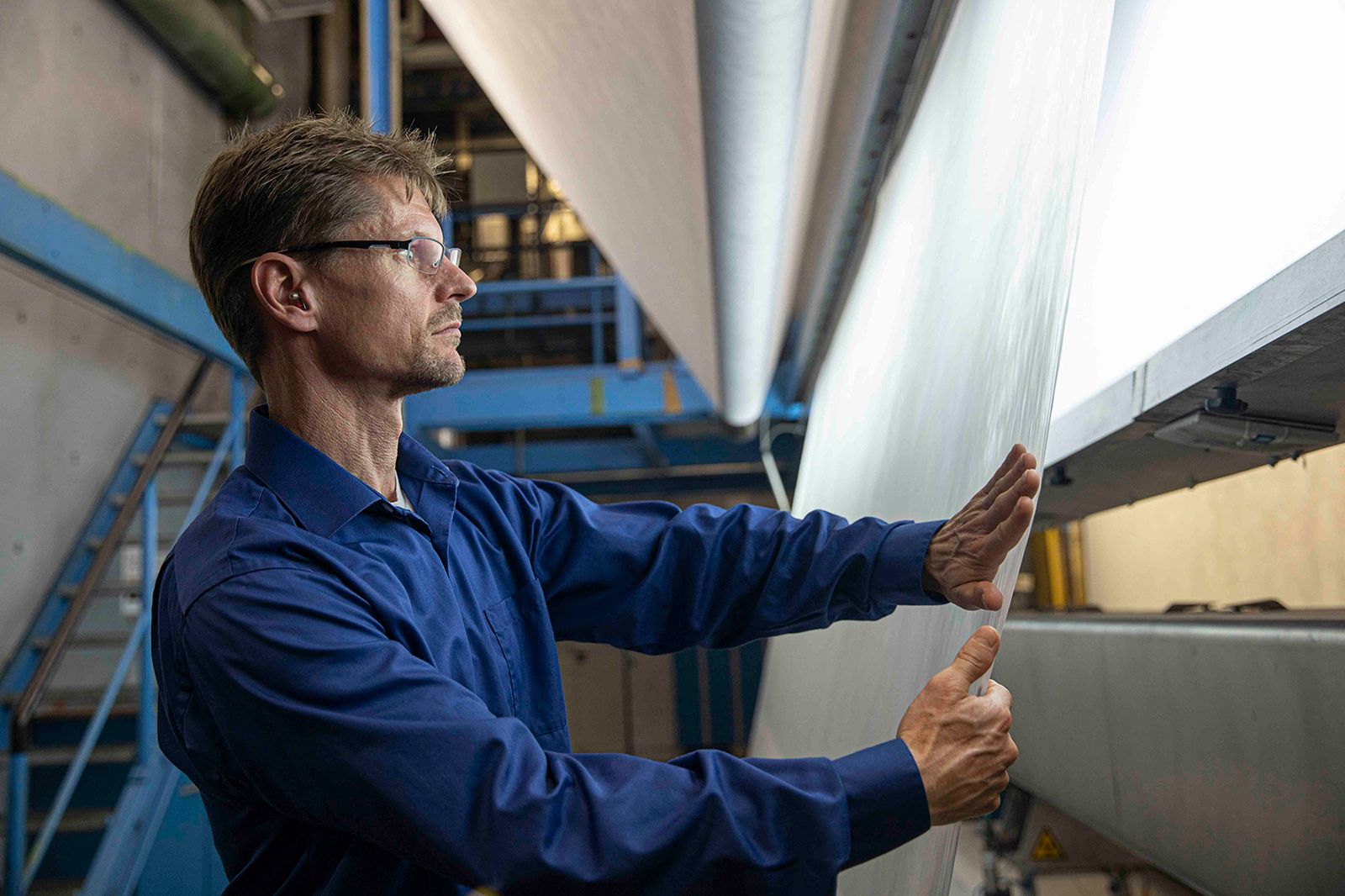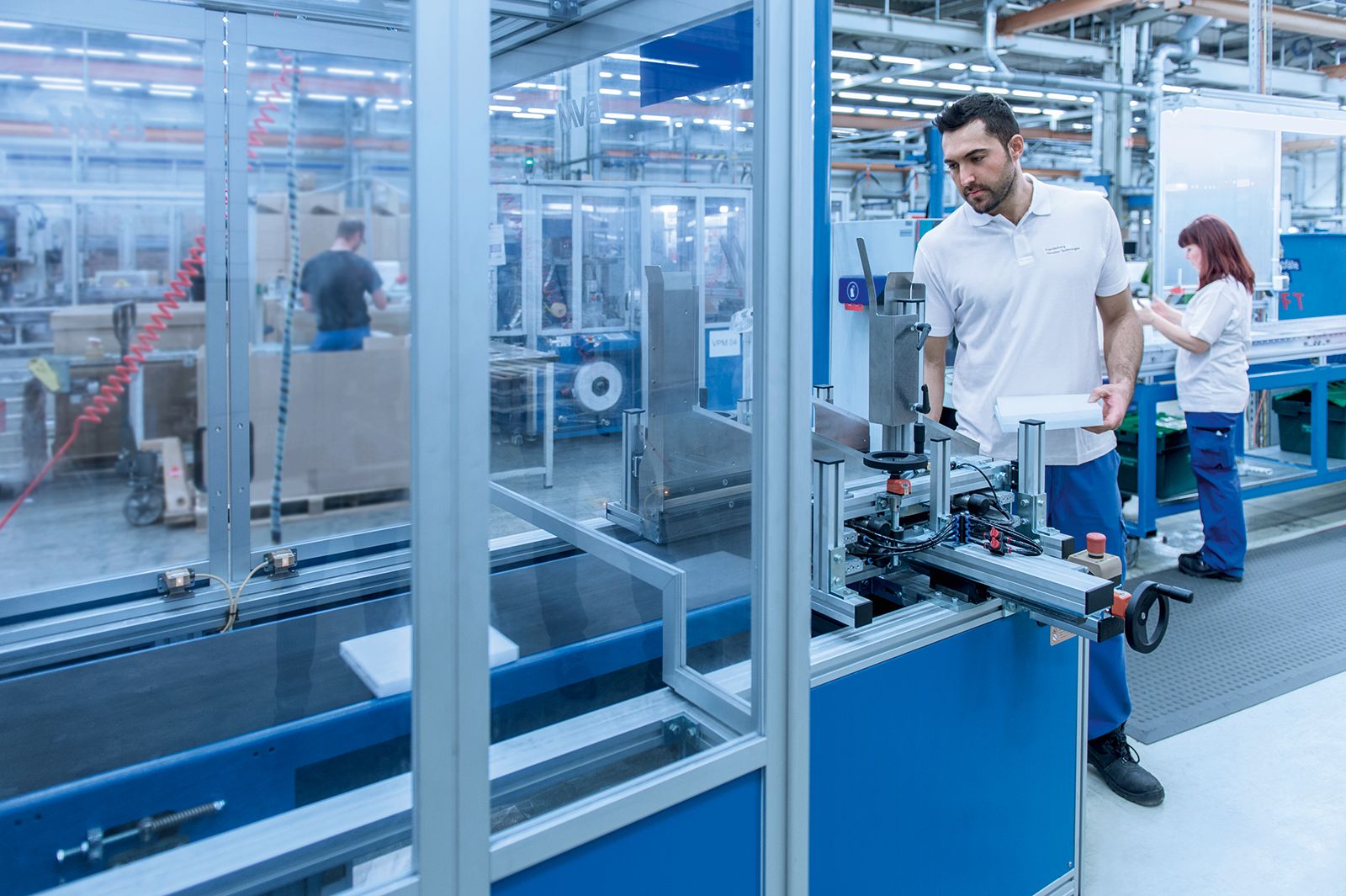
Freudenberg Kaiserslautern
More than 50 years of dedication
Located in the German Rhineland-Palatinate, Freudenberg’s Kaiserslautern site has a long history of successful innovation as well as being known throughout the Group for its friendly atmosphere and strong values. Today, around 600 employees from the Business Groups, Freudenberg Performance Materials (FPM), Freudenberg Filtration Technologies (FFT) and Freudenberg Medical (FM) work here in successful collaboration.
Established over 50 years ago, the site today produces a variety of different products serving multiple industries. Products such as technical nonwovens for face masks, sensor technology for the production of medical silicone tubing, and innovative automotive cabin air filters are all made in Kaiserslautern. The site has twice received the Rhineland-Palatinate state prize for the exemplary employment of severely disabled people, most recently in 2016.

A true sense of community
“We have enjoyed great collaboration for many years, with the rapid start of medical face mask production this year being just one example”,
commented Alexander Barnsteiner, site manager and SEO of Freudenberg Performance Materials.
His colleague, Werner Zinsmeister, added:
“I have worked in production at Freudenberg Performance Materials for 25 years, and I appreciate the way everyone here feels like family.”
Reinhold Witt has a learning disability, but that doesn’t stop him playing an important role at Freudenberg Medical, where he has worked since early 2016:
“I am happy to have this opportunity and I feel very comfortable at my workplace.”
Continuous investments
1970
___
When the company signed the purchase agreement with BASF in 1970 to produce spunlaid nonwoven as a joint venture, no one imagined that five decades later three Freudenberg Business Groups would be developing innovations for the world in Kaiserslautern.
1975
___
Freudenberg took over the company in 1975 and has continuously expanded production ever since.
1984
___
1984 saw the inauguration of what was, at the time, Europe’s most state-of-the-art high-bay warehouse with capacity for 25 million square meters of spunlaid nonwovens.
1990
___
In 1990, a regranulation plant was put into operation for recycling spunlaid nonwovens.
1998
___
Nonwovens for manufacturing filters have also been produced in the meltblown plant since 1998.
2002
___
A new plant to produce micronAir combi cabin air filters went into operation in 2002.
2009
___
Founded in 2009, Freudenberg Medical opened its European headquarters in Kaiserslautern.
2010
___
In 2010, the company began manufacturing silicone seal rings for medical devices.
2013
___
FPM opened another regranulation plant in 2013, which is used to recycle nearly 100 % of the startup scrap and edge strips from daily production.
2014
___
A new logistics center for cabin air filters was opened in 2014 by Freudenberg Filtration Technologies

Technical nonwovens for the medical industry
The latest development is the expansion of nonwoven media production capacity. As part of the project, Freudenberg has invested in the construction of a new, state-of-the-art meltblown plant, which went into operation in the first quarter of 2021.
A lot has been accomplished during the coronavirus pandemic, including the development of optimized nonwovens and production facilities for face masks. What would normally have taken several months was achieved in just a few weeks and the company is now producing around 500,000 masks every day.
Medical products for use in and on the human body
Just 100 meters from the mask production site, 50 employees work in the Freudenberg Medical competence center producing medical silicone products for use in and on the human body. Among other applications, these products end up as delivery systems for cancer medication, implants and other technologies that save lives and improve quality of life.
The company also produces silicone tubing for pacemakers and for pumps used in the pharmaceutical industry, all to extremely close tolerances. Every year, around 100 tons of silicone tubing leaves the site.
Combi filters for the global automotive industry
260 FFT employees manufacture filters in another production hall, including innovative activated carbon combi filters for automotive applications. The most recent innovation from Kaiserslautern is the micronAir Gas Shield activated carbon modules for cabin air filters. Since 2019, they have offered previously unheard-of protection against many gaseous pollutants, from nitrous and sulfur dioxide to ammonia, ozone and aldehydes.
Inclusion and innovation go hand in hand
True to its inclusive values, the Kaiserslautern site employs large numbers of people with disabilities in all sorts of different roles, from finishing work on filters to production and office tasks. In 2016, for the second time, this commitment was recognized with the Rhineland-Palatinate state prize for the exemplary employment of severely disabled people. “It is always a great success when it is possible to integrate a disabled individual into the working world”, commented Beate Knauber, support specialist for disabled employees at the Freudenberg Group.
The family atmosphere is typical of the Kaiserslautern site and is key to its innovation success. “Many of us have known each other for years, and we enjoy working together. There is a special camaraderie that also makes the work go more smoothly”, said Barnsteiner. He is looking forward to seeing how the site continues to develop in the coming years, where collaboration, partnership and values go hand in hand.

 automotive filtration insight
automotive filtration insight